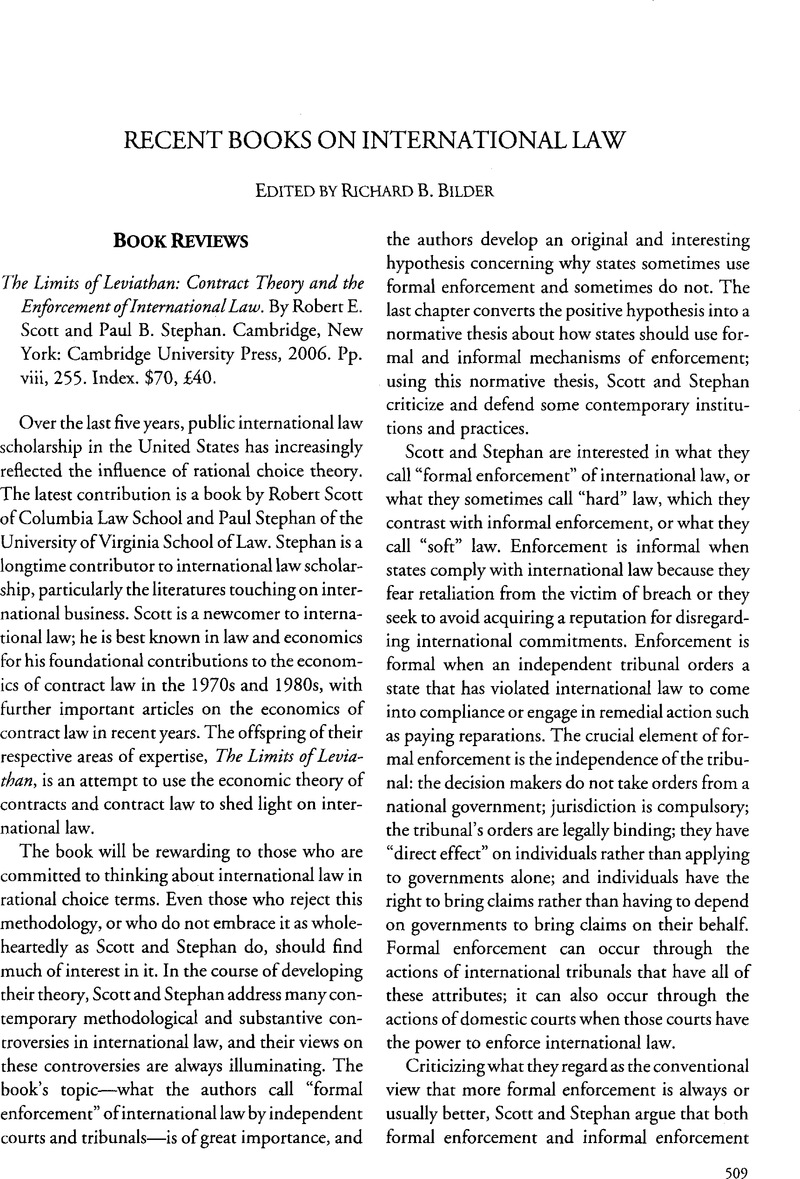Published online by Cambridge University Press: 27 February 2017

1 The crowding-out hypothesis is based on two arguments. The first draws on some cognitive psychology articles, which suggest that in some contexts people who reciprocate because of a psychological inclination to do so will be less willing if failure to reciprocate is punishable with formal sanctions. The second is based on a signaling theory, according to which formal enforcement deprives people of opportunities to signal their willingness to cooperate, and thus can reduce cooperation. In both arguments, formal legal sanctions for failure to cooperate have the paradoxical effect of reducing the overall level of cooperation—a theme of the literature on law and social norms. I do not have the space to address these arguments, which in any event do not seem essential to Scott and Stephan’s thesis. I will say only that the cognitive psychology evidence is rather thin and can be transported from ordinary social relations to international relations only with difficulty, and that the signaling theory is only sketched out—and not supported by much evidence—and consequently is hard to evaluate.
2 For a discussion, see Eric, A. Posner & John, Yoo, Judicial Independence in International Tribunals, 93 Cal. L. Rev. 1 (2005).Google Scholar